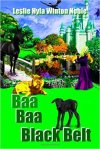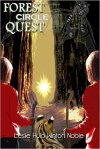An ‘ING’ is quite a funny th-ING.
It can to words completion br-ING,
Or turn a verb into a noun
If you a gerund should jot down,
So ‘walkING is a healthy sport’
Describes an ‘ing’-form of this sort.
Alas! The present participle
Is what drives a man to tipple,
An adjectival form is this:
‘The walkING boy blew me a kiss’,
But if up front you place that kind,
A subject trap you may well find!
‘WalkING up the street one day,
A kiss was blown to me,’ you say?
At that, though, I must promptly baulk,
For kisses surely cannot walk,
And, if with subject you dispense,
That sentence won’t make any sense.
I have previously posted on this subject, but I continue to see experienced writers wriggling helplessly in convoluted clauses. Starting a sentence with a gerund does add variety to writing, but it creates a trap which so many constantly fall into.
Think you understand it? Let me really tie your brain into knots:
BEING cannot be heavy, BEING described as the incredible lightness of being.
BEING (gerund – BEING as a thing which is not heavy)
cannot be heavy,
BEING (participle – BEING tells what BEING does)
described as the incredible lightness of
being. (gerund – being as a thing which has lightness)
So:
BEING described as the incredible lightness of being, BEING cannot be heavy.
But:
BEING, described as the incredible lightness of being, cannot be heavy. (here the participle BEING as an action has been eliminated and only BEING and being, as things, remain)
RUNNING is healthy, as everyone knows;
But if done by a nose, then ill-health it shows! (Gerund)
RUNNING for office, George neglected running the office. (Participles)
Having responsibility for security, it is up to John to have the alarm fixed.
Considering the circumstances, the outcome was pretty good.
(Do these sentences seem right? Actually, the first has a misplaced subject for ‘having’, while the second has no subject whatsoever for ‘considering’. However, these forms have become so common that the mind does pick out ‘John’ as the subject in the first, and translates the second as: When one considers the circumstances the outcome was pretty good.)
Right:
BEING correctly placed in a sentence starting with an ‘…ing’ word, THE SUBJECT of that word would be seen appearing directly after the comma.
(What is being placed? THE SUBJECT is what is being placed.)
Wrong:
BEING correctly placed in a sentence starting with an ‘…ing’ word, ONE would see the subject appearing directly after the comma.
(ONE is not being placed.)
What further confuses most people is putting another clause in between:
Right:
BEING correctly placed in a sentence starting with an ‘…ing’ word, with proper grammar, THE SUBJECT of that word would be seen appearing directly after the second comma.
Wrong:
BEING correctly placed in a sentence starting with an ‘…ing’ word, with proper grammar, ONE would see the subject appearing directly after the second comma.
Wrong:
BEING obscured by the clause in the middle, and far away from the first word, IT is going to be difficult to find the subject of that word.
(Here, ‘it’ has become the subject, which it is not – but is the subject of ‘going’.)
Right:
THE SUBJECT of a word ending in ‘…ing’ causes confusion. BEING correctly placed in a sentence, and so as not to make the sentence senseless, IT should be placed directly after the second comma.
(Because of the new sentence in front, IT has become correct, because IT now refers to THE SUBJECT in that first sentence.)
Now, ice-packs applied to the brain are recommended.
© Colonialist March 2013 (WordPress)


















And as to the fate of the walking, kissing boy, you being leaving us dangling…
LikeLike
Being wanting a bedroom scene where it should not be dangling?
LikeLike
Human Been, bean, or being.
Being human.
It don;t meant a th-ing if it ain’t got that ‘ing’
Another nice grammar lesson but a tad confusing for this late.
In Pratchett’s novel, The Truth, a villain named Mr. Tulip uses the the term ‘-ing’ as an adjective before everything.
“I really -ing hate this place”, and this is how Pratchett writes it throughout the book. His dialogue is hilarious and as several of us at The Ark’s spot have read this book, at one time we found we kept using the term as well. I am not -ing kidding, either.
LikeLike
I love it, and think I will adopt it. Of course, as TP wrote it with the dash, I rook it that Mr Tulip was using the other four letters but they had been edited out. I am debating with myself whether to use ing or king.
You stupid king idiot, what do you king think you’re king-well doing?
Hmmm. Has possibilities. But maybe ing is ing-well more subtle.
LikeLike
The -ing is more subtle. Your reply suggests you have read it? If so, then you’ll remember when he was confronted by Sacharissa for swearing he replied, genuinely upset,”I don’t -ing swear!”
LikeLike
The problem with the -ing was that I still thought the rest was there but edited out, and not that he was say-ing just ing.
LikeLike
🙂 Okay. I was a bit confused with your initial reply. I was trying to post the long dash but the ordinary comment function doesn’t allow me to. I am still grateful for that particular grammar post, the em and en dash, remember it?
LikeLike
I do – they are still dreadfully misunderstood little things, in need of counselling!
LikeLike
This English language is just too difficult to really understand… the art of being right…
LikeLike
I don’t know how anyone can learn to speak it!
LikeLike
Chastened, I shall be writing in simple sentences henceforth.
LikeLike
I have chastened you away from my blog?
LikeLike
Not at all 😀 You would have to be a lot more chastening than that to scare ME off.
LikeLike
I need more than a few ice-packs! This weekend was supposed to be one where I switched my brain off and now you’ve just put it into overdrive
LikeLike
Oops! Emergency! Switch off the ignition!
LikeLike
Mmmmm, I think after this, being totally confused, I now need a “dop”.
LikeLike
I love providing good excuses for that! Not that much of an excuse is needed …
LikeLike
LOL! Having read all this, I recommend shorter sentences and more action in fiction. Self-defence. See?
LikeLike
Being a far simpler solution by far, and easy to exectute, authors should have their stories being full of action?
LikeLike
LOL!! 😀
LikeLike
You had too much time to think today 😉
I’m BEING facetious 🙂
LikeLike
You are being grammatically correct, too!
LikeLike